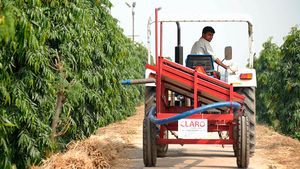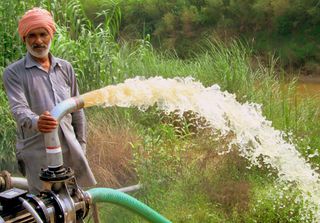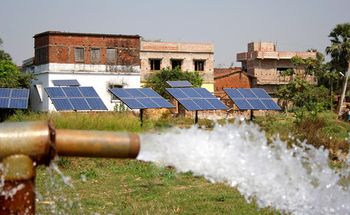Low-Cost Pay-Per-Use Irrigation Using Solar Trolley Systems
Overview
|
Project |
||
|
Location Applied |
||
|
Website |
In India, the availability of irrigation water is dependent on monsoon patterns or the availability of power to operate ground water pumps. Many villages lack access to electricity. Given this lack of electricity, diesel pumps are often the most reliable means to pump the water that is used for irrigation. The use of diesel fuel has many drawbacks, including environmental pollution, as well as ever-increasing costs which have a negative impact on farmers’ economic prosperity.[1]
Clean Energy Solution
Claro Energy intends to offer a pay-per-use irrigation service that uses a portable solar pump. The portable design will provide affordable, convenient, and on-demand irrigation. The service will meet the needs of a wide range of farmers who do not own pumps, with no upfront capital costs incurred. The farmer will call a toll-free line, pre-pay, and schedule irrigation service at his field.[1]
Impact
The project will enable farmers to irrigate larger amounts of farmland, increase production during the summer season, and invest funds saved on the purchase of diesel in more efficient technologies. All of these results will increase farmers’ productivity and income, while decreasing GHG emissions. The proposed project will create employment in rural, agricultural communities, as villagers have the opportunity to become local irrigation service providers.[1]
Organization
Claro Energy provides off-grid solar power pumping solutions to power-deficient regions in India. The company was established in 2011, with the objective of harnessing solar power to pump ground water. Claro’s solar water pump solutions can have broad application across irrigation, agriculture, drinking water, and urban settings.[1]
Further Information
- Website Powering Agriculture Homepage, Winners 2015
- Powering Agriculture: An Energy Grand Challenge for Development
- India
- Website Claro Energy
References
- ↑ 1.0 1.1 1.2 1.3 Powering Agriculture: http://poweringag.org/innovators/low-cost-pay-use-irrigation-using-solar-trolley-systems























